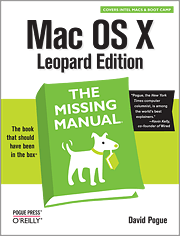My good friend Elizabeth sent me this weekend's New York Times essay in the books section, "It's Not You, Just Your Books," and right away I understood why this shot to the top of the Most E-mailed list online. If you're reading the Times, even online, you probably consider yourself more erudite than the average bear, so the issue of what you like and don't like where reading is concerned is probably pretty long. And for the souls brave enough to tell writer Rachel Donadio about their own "literary dealbreakers," well, there's always the chance that one of them dated someone you know and you can mock them. (Sadly, this was not the case, but I skimmed the article in hope!)
Dating discrimination happens for many reasons, and being a book lover myself I understand when people say, If he's reading Dan Brown, I'm out. I've been poring over the comments section to a related blog post on nytimes.com as if they were a sociological Rosetta Stone. (#155 is my favorite even though it argues against literary discrimination.) I think worse than only reading thrillers or romance novels are people who either say "I don't read" or, horrors, ridicule the act of reading. Those I would consider two of my "dealbreakers." I've had people tell me before to my face that they consider reading a waste of time -- if only they had X-ray vision they would be able to see the at least two books I carry with me at all times.
Two specific dealbreaking books I can name are Neil Strauss's THE GAME and Tucker Max's I HOPE THEY SERVE BEER IN HELL. If you are not familiar with the reputations of these authors, a quick Google search will turn up some of their misogynistic writings (which I have read, which is how I know) and, worse, their scary fan base. I have known a few good guys in life who own one or both of these books, but they are the exceptions that prove the rule for me; if I see him reading it on the subway, I will steer way clear.
In my short and unremarkable dating career I have never broken it off with a guy because he liked a book I disliked or vice versa. Not that I don't have my biases, because readers, I do, but it has never happened to me. Then again, if I had, my current boyfriend might be the casualty of such discrimination, or I would be to him. We have some books in common, but he really likes CATCHER IN THE RYE, and I really don't. He recently finished THE EXECUTIONER'S SONG, which I haven't even read (and at 1072 pages, will probably not get to for a while). But the important thing to me is, he self-identifies as a reader, despite a punishing grad school schedule that adds hundreds of pages to his weekly workload. He encourages me to read instead of scoffing at my hobby, and doesn't every bookworm deserve the same?
2 days ago










